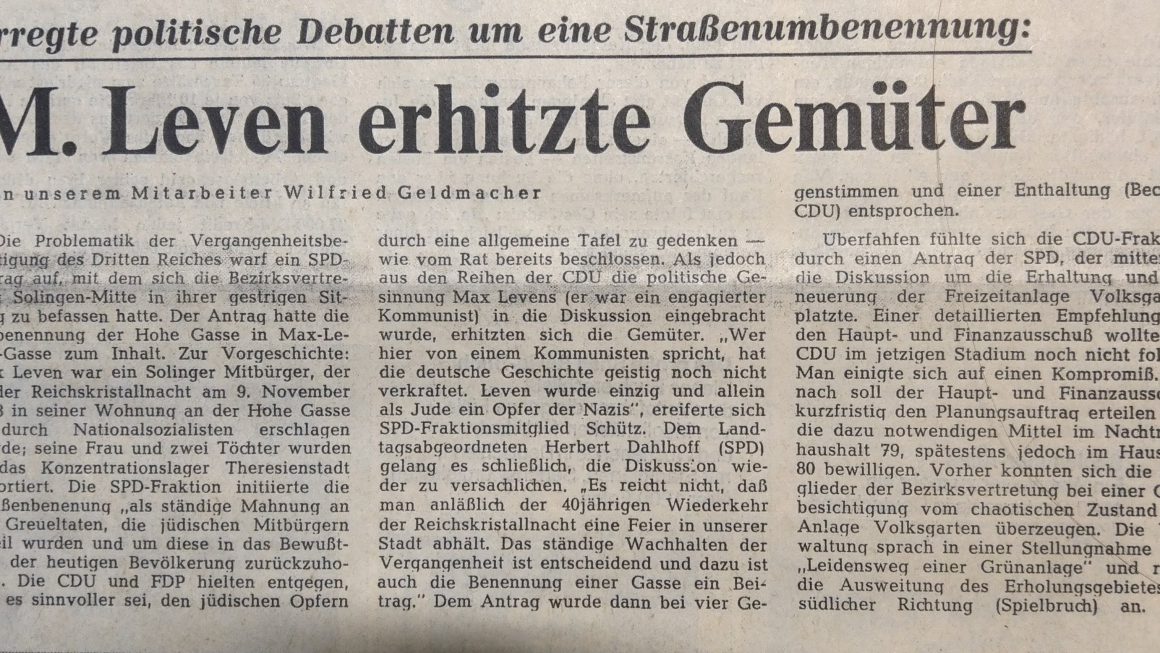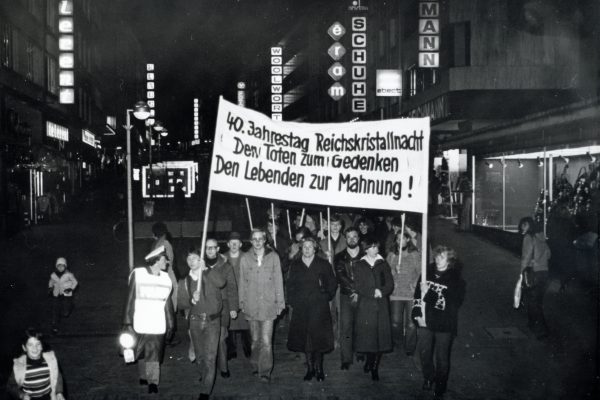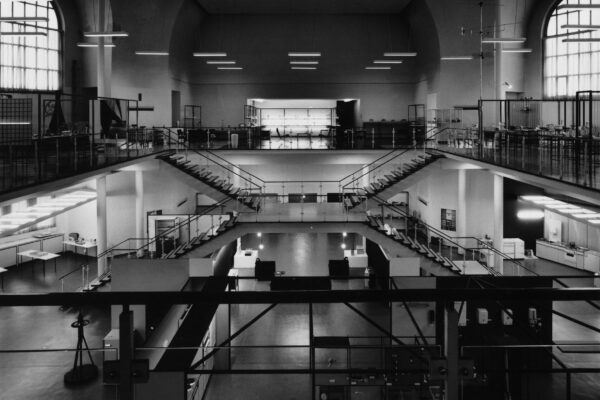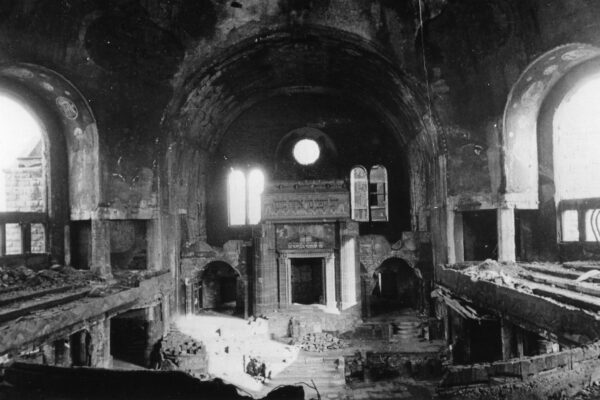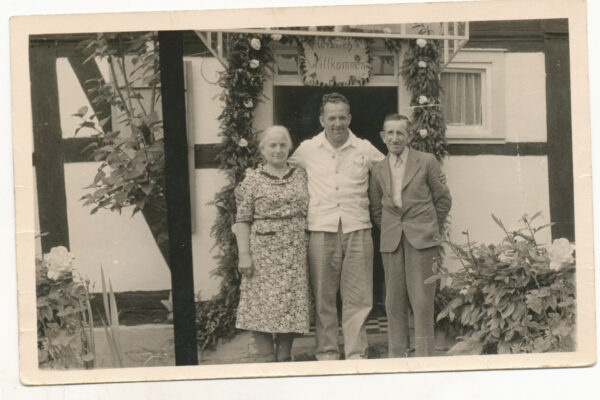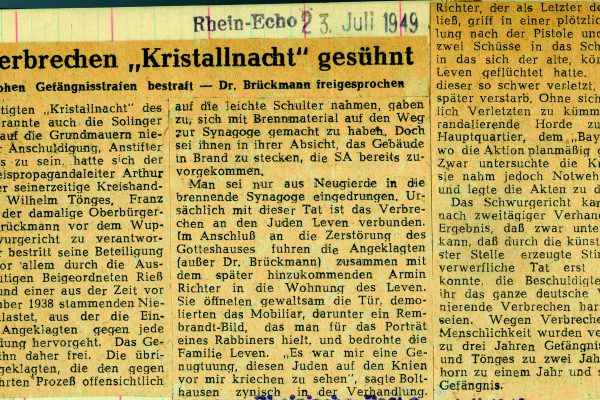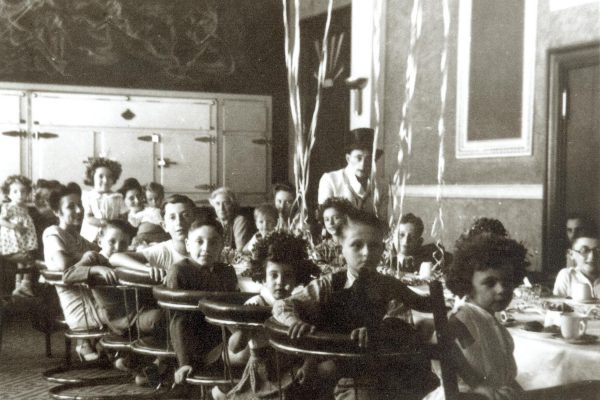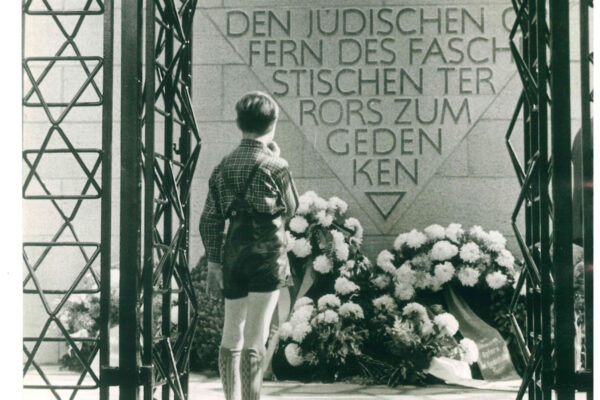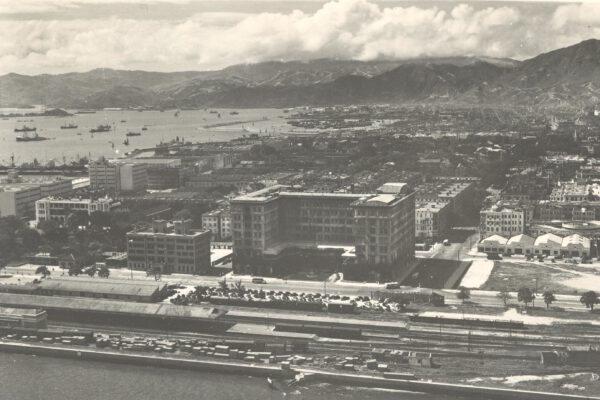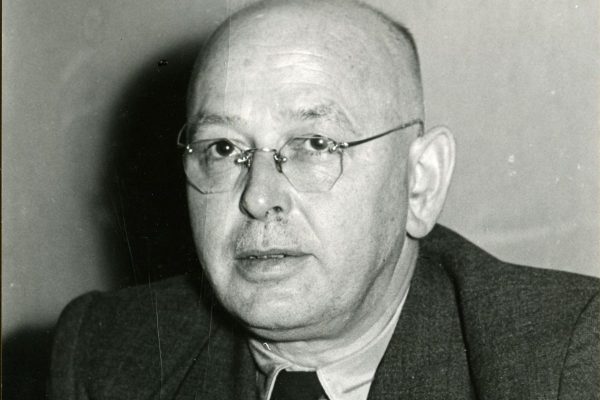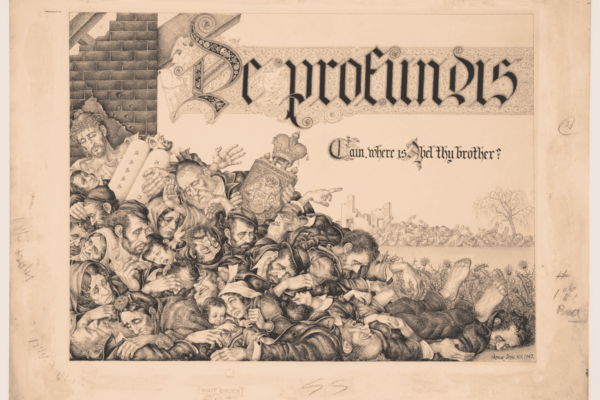On the basis of a citizens’ petition, the Solingen-Mitte district council decided to rename Hohe Gasse as Max Leven Gasse in memory of the former cultural critic of the newspaper Bergische Arbeiterstimme, who was shot here in the pogrom night, and whose fate was in danger of being forgotten. The decision was not a foregone […]
First solemn vigil to commemorate the November pogrom in Solingen
On June 8, 1978, the Solingen City Council resolved to hold a commemorative vigil with the Jewish studies scholar and historian Prof. Ernst Ludwig Ehrlich on the fortieth anniversary of the pogrom night. In November 1978, an exhibition of the city archive on the NS regime was presented in Solingen. On November 9, 1978, a memorial […]
The “House of Industrial Form” in the former synagogue
From 1960 to 1979—the period of the Wirtschaftswunder or “economic miracle”—the City of Essen exhibited chairs, fabrics, and lamps at the so-called “House of Industrial Form.” The women’s gallery and the Torah roll shrine are torn down and a false ceiling inserted, so that the cupola was no longer visible. A part of the city’s […]
The burnt-out synagogue building is falling into disrepair
After 1938, the synagogue was a burnt-out ruin with window cavities in the middle of the city. In 1953, the property is transferred to the Jewish Trust Corporation, the legal successor organization for abandoned Jewish community property in the British Zone. Stones fell from the façade. Between 1949 and 1959, the postwar community of roughly […]
Return of the Seligmann family from Argentina to Rosbach
Alfred Seligmann from Rosbach married Hilde Minkel from Weisenau in the summer of 1938 and lived with her in his parents’ house on Bergstrasse (later a memorial). Hilde and her family were the driving force when it came to emigration; to finance it, they sold their house in Weisenau. On October 28, 1938, the Seligmann-Minkel […]
Verdict against the NS perpetrators of the pogrom night in Solingen
Six months after a criminal complaint was filed on August 24, 1946, initial investigations were initiated against the perpetrators of the November 1938 pogroms. In February 1947, the Communist newspaper Freiheit pointed out in an article titled “The Murderer Is Among Us” that one of the men who had been involved in the murder of […]
Children with an uncertain future: The remaining refugees of Hong Kong
Refugee children sometimes ventured outside the hotel to explore Hong Kong. One former refugee remembers trips on the Star Ferry, tasting ice cream for the first time, and visiting the Repulse Bay beach, courtesy of his mother’s friend. After the privations of war and the bombings wrought on Shanghai, Hong Kong was like a paradise […]
The Jewish community in the post-war period
Survivors of the Holocaust from Halle and the surrounding area once again founded a Jewish community in 1947, which moved into the community center at Grosse Märkerstrasse 13 in 1952. With the permission of the Soviet military administration, the mourning hall on Humboldtstrasse was converted into a synagogue, as such a building had been missing […]
Liberation and Resettlement: The Peninsula Hotel
Hong Kong was liberated from the Japanese in August 1945. In the post-war years, the colony once again became a site of transit – this time for Jewish refugees leaving Shanghai to find new homes in Australia and Israel (est. 1948). Lawrence Kadoorie helped refugees emigrate to new countries by providing temporary accommodation in his […]
The end of the war in Solingen
On April 17, 1945 “around 1:00 p.m.,” US Colonel Lansing wrote in his war diary, “the entire region of Solingen and its surroundings was under our control.” The American invasion took place with practically no resistance, since anti-fascist groups had ensured a peaceful handover in several places. Already at 2:00 p.m., Oskar Rieß was appointed […]
New York: “De Profundis. Cain, Where is Abel Thy Brother?” by Arthur Szyk
This important work represents Arthur Szyk’s involvement in raising awareness in the United States of the Holocaust taking place in Europe. On March 9, 1943, the show We Will Never Die, written by Ben Hecht, was performed in Madison Square Garden as part of a memorial pageant calling to rescue the Jews of Europe. Within […]

